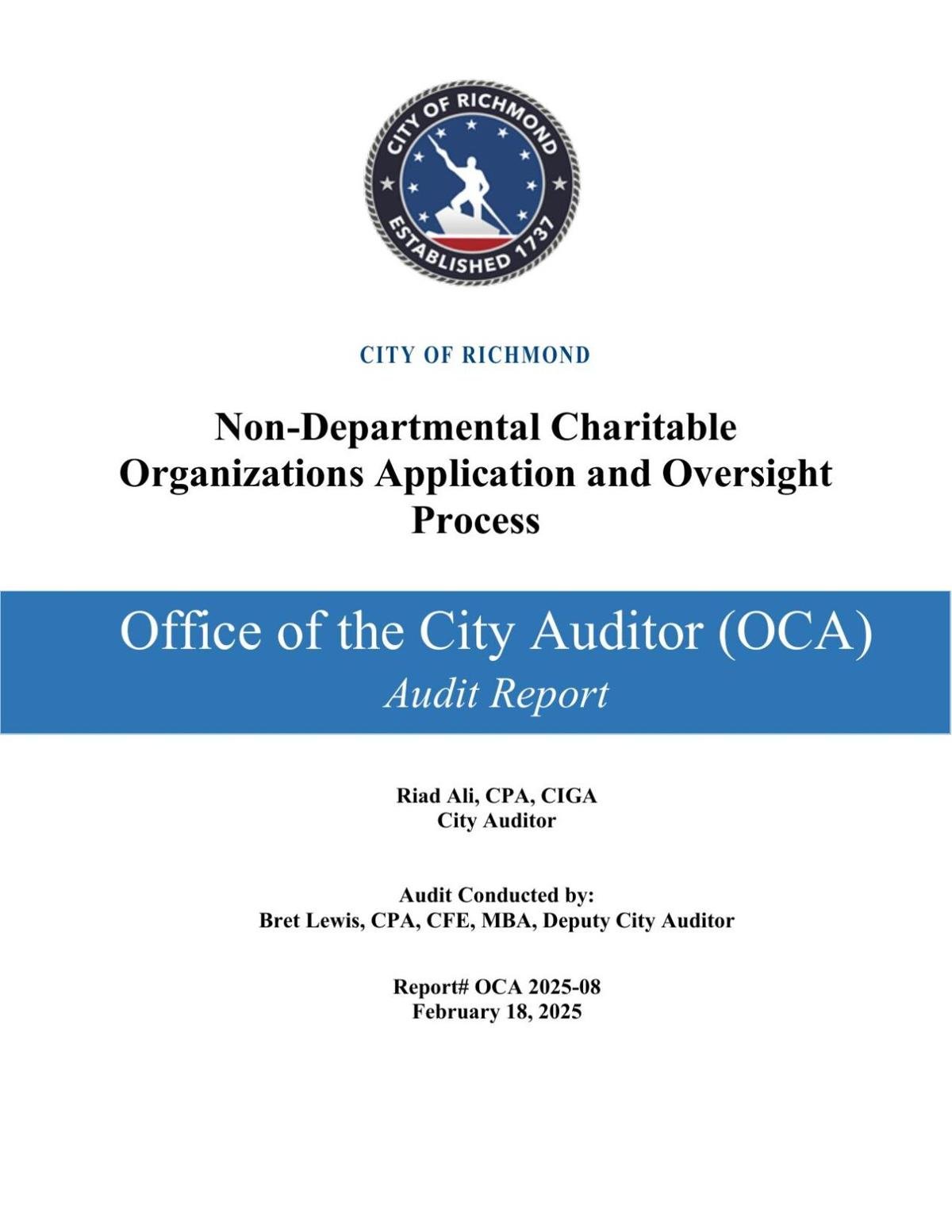City officials in 2023 awarded $1.45 million in public grant funds to charitable organizations that were not eligible to receive them, according to a report published last week by the Office of the City Auditor.
The audit, which reviewed grant disbursements approved in 2021 for fiscal year 2023, also found that officials disqualified nonprofits that were eligible for funds, showed favoritism in the selection process, improperly discarded records and lacked critical internal controls such as standardized review policies and conflict-of-interest management.
As a result, the city is at risk of undetected fraud and could be “allocating grant funds to organizations that may not represent the most effective use of taxpayer dollars,” the report says.
People are also reading…
The city’s non-departmental grant program supports independent organizations that offer critical services like education, housing and health care. It has seen nearly $30 million disbursed to charitable organizations since 2023.
The improper awards were spread across 16 different organizations, according to the report, and accounted for 25% of the nearly $6 million doled out to charitable organizations in 2023.
That same year, 34 organizations that did meet the established criteria were denied access to funds, the auditors found. The report does not specifically identify any of the nonprofits.
A spokesperson for Levar Stoney, who was Richmond mayor during the audited period and is currently running for Virginia lieutenant governor, did not immediately respond to a request for comment.
‘No documentation existed’
The process for reviewing 2023 applicants was primarily conducted by the city’s Department of Human Services, which in 2023 analyzed 79 of the 82 applications and made recommendations to the city’s budget office. The departments of Public Works and Planning and Development Review handled the other three applications.
In theory, applicants must clear several bars to receive funding, such as demonstrating that their goals align with the city’s and that their efforts “do not duplicate existing city services or programs.”
In preliminary evaluations, the 2023 applicants were graded against the criteria by a “committee of subject matter experts” within human services, according to the report — although each committee consisted of only one reviewer. The committees graded applicants on a 100-point scale, and applicants needed to receive a minimum of 75 points to qualify.
But whether those initial scores impacted the ultimate funding decisions is not clear, because the nonprofits were subjected to a second human services review that “did not follow specific documented criteria.”
“A human services manager informed (auditors) that the (second) review considered committee scores ... but no documentation existed that explained how these factors influenced funding decisions,” says the report, noting that, in some cases, funding was recommended for organizations despite the fact that preliminary reviewers expressed misgivings about their work.
City auditors were not able to review individual scoring sheets for each organization because the sheets had been “discarded in a warehouse cleanup” — a potential violation of state records retention laws, according to the report. The auditors instead had to review scores compiled in a spreadsheet.
The scoresheets were not the only documents to disappear in the purge. According to the report, the conflict-of-interest disclosures filled out by human services staff were also thrown out when the warehouse was cleaned.
“As a result, (the auditors) could not verify whether reviewers disclosed conflicts or abstained from reviewing applications where conflicts arose,” the report says.
Ultimately, 16 organizations received grants despite the fact that they “appeared to be ineligible,” auditors found. Thirteen had submitted their applications after the deadline. Three had not scored high enough on the preliminary evaluation.
Two organizations had both missed the deadline and scored too low to qualify. Meanwhile, more than 30 applicants that met the criteria “were removed or had their funding reduced.”
Selective treatment an issue
The report also identifies instances of “selective” treatment for organizations that had received funding in the past.
For example, human services staff sent unsolicited emails to nonprofits that had previously been awarded funding — but had missed the deadline to reapply — and informed them officials had extended the deadline for them “as a courtesy.”
“This new deadline was not publicly communicated or provided to other applicants,” the report says.
The favoritism was similarly displayed among staff at the Department of Public Works, which also “lack(ed) specific review criterias” and adequate training, according to the report.
One public works staffer told auditors that they “could not recall making a funding recommendation, and said they had never seen the application.” When shown an email they had sent recommending a $50,000 award, the staffer said the recommendation was “based on their prior knowledge of the organization’s prior work ... and their belief that the amount was reasonable.”
Multiple departments implicated
Lack of cooperation and communication between departments — which the report says all took different approaches — caused funding decisions to appear arbitrary.
For example, 20 applicants who had received positive recommendations and met the established criteria were not selected for any funding in then-Mayor Stoney’s proposed budget, while five organizations received less than recommended and six received more than recommended.
Officials in the mayoral administration told auditors they had not been provided with the scoresheets and instead had attempted to make “case-by-case” decisions on whether “funding submissions represented a good use of taxpayer dollars.”
But since the decision-making process at that level was not documented, auditors were not able to determine why or how those selections were made. Human services staff told auditors that the deputy chief administrative officer for human services would sometimes “override” their decisions.
Standardized framework, stricter enforcement suggested
Auditors suggested a collection of steps to guard against misuse of non-departmental grant funds, including the establishment of a “centralized, standardized framework governing the application review and grant award process.”
Any deviations from that framework should be documented and justified, the report says. And the city’s chief administrative officer should have more direct oversight of the entire process.
City officials did not immediately respond to a request for comment.












